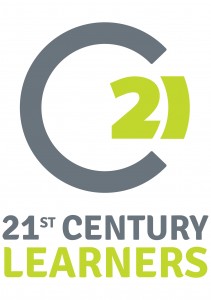Reason Across Difference
We are bringing our children into a pluralistic world in which they will encounter many perspectives different to their own (as continues to be underlined by cultural clashes around the world). How they engage with these perspectives will make huge differences to their learning, their wisdom, their relationships – and even their safety. Teaching through and for dialogue can help children to make the best of an encounter with ‘the other’. Here are some ideas that support this view:
Dialogue helps us to make meaning and to develop our understanding of concepts: Having a store of readily retrievable, factual information in long-term memory helps us to think and to make meaning of the world around us (see Daniel Willingham’s book ‘Why Don’t Students Like School‘ for a discussion of the importance of factual knowledge). But making meaning is an active process – it requires us to act on the information stored in our memories. This can be achieved when we use the information in dialogic encounters with someone or something with a different perspective – let’s call it something ‘other‘. Once we open up to another perspective, we can hold it in critical and creative tension with our own. A comparison of the two views provides challenge to both. Synthesis might lead to the construction of new and richer understanding. Misconceptions can be identified and addressed. Without this difference, this encounter with the other, facts can be left bereft of meaning. Teachers can ensure that children come into regular contact with ‘the other’, and that they have the skills and dispositions needed to engage with it dialogically.
Teaching dialogue is a way of teaching thinking: To enter into a dialogic relationship with ‘the other’ we must first open up to that which challenges us (be that a different understanding of justice, or of chemical equilibrium). We must view a different perspective not as a threat, but as a call to thinking, and to the construction of new and better meaning. Teaching children to engage with other perspectives in a constructive way is perhaps an effective way of ‘teaching thinking’ (see Professor Rupert Wegerif’s book ‘Mind Expanding‘ for a more detailed discussion. This can lead children to a better understanding of those around them (and perhaps even of themselves). The word ‘dialogic’ can be taken to mean ‘reason across difference‘, and reason across difference, it seems to me, is key to relationships at all levels.
Whilst dialogues typically happen between two or more people, the dialogic skills involved can be transferred to the interrogation of text and other media (implying a critical rather than a passive encounter). It may even be that these views can protect children from ‘extreme’ and potentially harmful perspectives. Opening up to another view does not mean adopting it, but ‘visiting it’, challenging and testing it, evaluating the reasons that support it and, sometimes, rejecting it.
Dialogue is essential to the wider purposes of education: As discussed above, dialogue can help us to make meaning and develop better conceptual understandings. Education is about more than this, however. If education is also about the induction of children into our society then their ability to enter into dialogical relationships is vital. For example, if our children are to fully engage in a deliberative democracy, or if they are to inherit wisdom, culture and values from older generations, and to challenge these ideas and take them forward into the future, then they will need the skills and dispositions of dialogue. If education is about developing subjectivity and agency, dialogic relationships are essential; developing a presence in the world depends on us taking up the beginnings of others and allowing others to act on our beginnings – it is a social and dialogic process (see Gert Biesta’s book ‘The Beautiful Risk of Education‘ for a more detailed discussion).
Teaching for Dialogue: The skills of dialogue can and should be taught in schools. This is more problematic than it might seem – without sufficient structure discussions between students can easily fall short of being dialogic. Approaches such as Philosophy for Children (P4C) offer a structured way of teaching dialogic skills and dispositions – ways of engaging with ‘the other’ – which I believe can transfer across the curriculum and beyond. I have worked with many teachers and schools using P4C to create ‘Communities of Enquiry’ in their classrooms. I am currently working with Professor Rupert Wegerif of Exeter University (whose ideas underpin much of this post) to develop a framework to support effective dialogue across the curriculum. I’m also working with the Cheshire-based group ‘The Young Actors’ to explore dialogue through drama and to develop inter-generational dialogue in the community around the values we hold to be important. If you would like to know more about any of these projects, please do get in touch.



